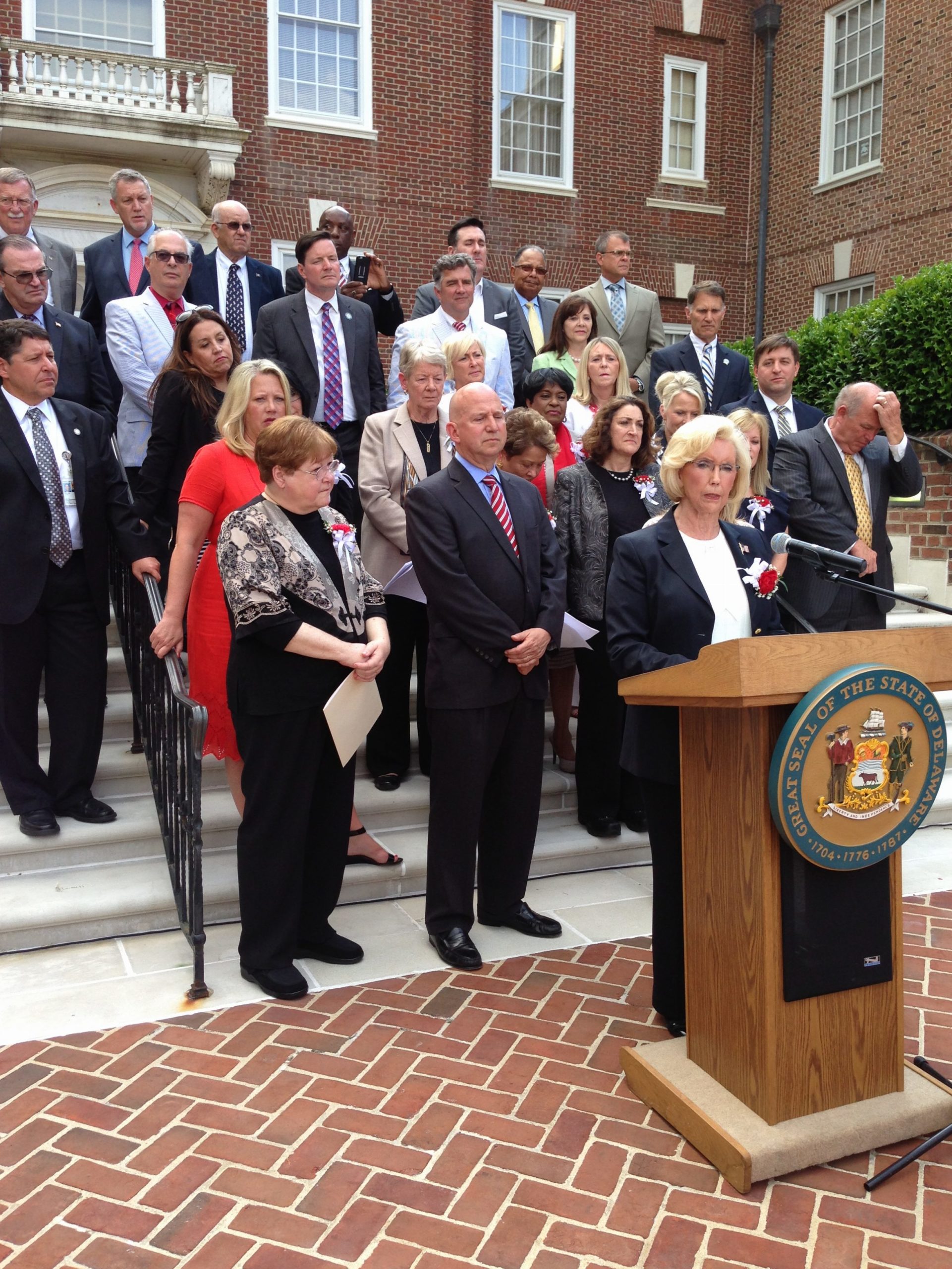ACLU & NWLC Submit Brief in Support of Landmark Pregnant Workers Fairness Act
More than 20 Labor, Workers’ Rights, and Gender Justice Organizations Submit an Amicus Brief Opposing Attack on Workplace Accommodations
WASHINGTON — A broad coalition of more than 20 labor, workers’ rights, and gender justice organizations — led by the American Civil Liberties Union, the ACLU of Arkansas, the National Women’s Law Center, and the law firm Katz Banks Kumin — filed an amicus brief yesterday in State of Tennessee v. Equal Employment Opportunity Commission supporting the Equal Employment Opportunity Commission’s (EEOC) regulations implementing the landmark Pregnant Workers Fairness Act (PWFA).
The PWFA, which took effect last year, was the culmination of a decade-long campaign to secure access to reasonable accommodations for workers with temporary limitations caused by “pregnancy, childbirth, and related medical conditions.” The EEOC’s regulations, due to become effective on June 18, 2024, provide comprehensive guidance to workers, employers, and the courts about the statute’s range of protections. In April, 17 states — all of which ban or impose significant restrictions on abortion — filed suit challenging the EEOC’s inclusion of abortion among the pregnancy-related conditions entitled to accommodation under the statute, and seeking to nullify the regulations in their entirety. Earlier this month, the states filed a motion asking the court to hold the new regulations in abeyance while the lawsuit is pending. The amicus brief filed by the ACLU, the ACLU of Arkansas, the National Women’s Law Center, and Katz Banks Kumin supports the EEOC’s opposition to that effort, urging that the regulations be permitted to go into effect on schedule.
Congress passed the PWFA to ensure that workers affected by “pregnancy, childbirth, and related medical conditions” could obtain the reasonable accommodations they need – before, during, and after pregnancy. The phrase “pregnancy, childbirth, and related medical conditions,” comes directly from the Pregnancy Discrimination Act (PDA) of 1978 and from the time of its adoption has been interpreted by courts and the EEOC to include abortion.
The ACLU-NWLC brief shows how abortion is a part of the full spectrum of pregnancy-related needs that the PWFA is intended to protect. It also documents the dangerous consequences of denying abortion patients access to job-protected time off, particularly in light of the overturning of Roe v. Wade, which created “abortion deserts” in vast parts of the country, requiring long travel and often multiple days off work to reach the nearest provider. Because vast swaths of the U.S. workforce lack any access to job-protected leave, the brief shows how the PWFA is vital to assure that workers seeking abortion are not forced to choose between obtaining needed care and keeping their jobs.
For example, Mylissa Farmer was working in a low-wage job in Missouri when she suffered a miscarriage a year and a half before the PWFA’s enactment. After her amniotic fluid ruptured when she was 17 weeks pregnant, an ER doctor informed her she needed an abortion or risk dying from a hemorrhage or sepsis. But her local hospital denied her emergency abortion care, claiming its hands were tied under the state’s abortion ban. She and her partner then spent four days crossing state lines searching for treatment until she finally received a life-saving abortion in Illinois.
“During this period, my employer called multiple times pressuring me to return to work. The doctor insisted I take two weeks to heal, but I pleaded for the greenlight to return to work after only two days. I had no alternative. I couldn’t afford to lose my job. Yet, I was still reprimanded often for missing work related to my pregnancy loss,” Farmer said. “This compounded trauma upon trauma. Had the PWFA existed back then, I would have been able to request the time I needed to receive care and heal properly. All pregnant workers deserve this type of protection, including when they need an abortion. The EEOC’s rule will help make sure that workers are able to fully enjoy their rights under the new law.”
The brief presents multiple other accounts of workers denied needed accommodations for a host of pregnancy-related needs since the PWFA went into effect last year, illustrating why the EEOC’s regulations are key to the new law’s enforcement. These accounts, disproportionately reported by workers in low-wage and male-dominated industries, include:
- A warehouse worker who returned to work the day after obtaining an abortion due to a fatal fetal condition, even though her job involved prolonged standing and heavy lifting and her doctor advised a week off from work, because she could not risk being fired.
- A pregnant worker whose ectopic pregnancy was not timely diagnosed because she could not take off work for medical appointments, putting her at risk of a ruptured fallopian tube and requiring surgery.
- A pregnant steelworker whose employer forced her on leave, then demoted her, when she sought to be excused from operating heavy machinery during her second trimester.
- A pregnant security worker whose employer’s delay in responding to her request for restroom accommodations resulted in her hospitalization for preterm contractions that her doctor attributed to her lack of bathroom breaks.
- A lactating sales worker whose employer told her that she needed to “make up” the time she spent pumping or risk discipline for failing to meet quotas.
- A pregnant mechanic whose employer forced her on leave when she requested temporary reassignment to an air-conditioned space to safeguard her health from dangerous heat.
“The PWFA’s promise for workers’ well-being and economic security will remain unfulfilled if the EEOC’s regulations cannot go into effect.” said Gillian Thomas, senior staff attorney at the ACLU Women’s Rights Project. “Let’s be clear: Extreme politicians are trying to use this case to block historic civil rights protections from taking effect for millions of workers.”
“For many years, the ACLU of Arkansas has steadfastly defended the rights of pregnant Arkansans against continual encroachments by the state into people’s private lives,” said Holly Dickson, executive director, ACLU of Arkansas. “This lawsuit by Arkansas Attorney General Tim Griffin attacking pregnant Arkansans’ rights is a terrible overreach motivated by political theatrics and not genuine concern. He needs to refocus his efforts away from hurting vulnerable people and instead tackle the real and urgent issues Arkansans face.”
“This lawsuit once again exposes that extremists are willing to sacrifice the health and economic security of millions of workers and their families to advance their anti-abortion agenda,” said Gaylynn Burroughs NWLC director of workplace equality. “This brief—including the devastating accounts of workers denied needed accommodations—shows why the EEOC’s regulations are essential to ensure that no worker has to choose between their well-being and their job.”
A copy of the brief can be found online here.




